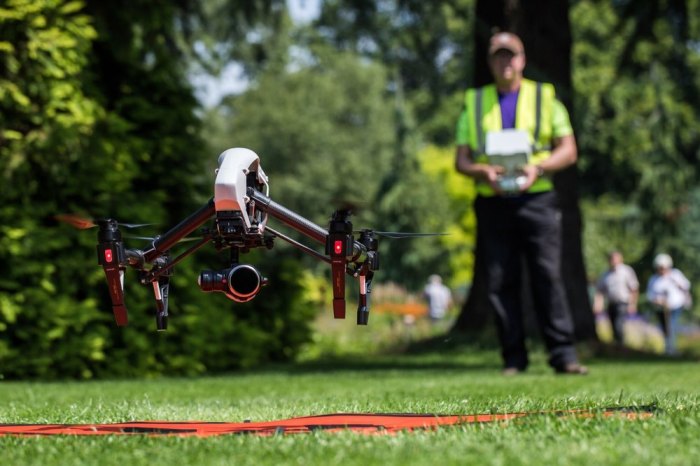The inspections and surveys condition in a businessowners policy plays a pivotal role in risk management and loss prevention. This provision mandates policyholders to conduct regular inspections and surveys to identify and mitigate potential hazards. By understanding the coverage, requirements, and consequences of non-compliance, business owners can effectively comply with this condition and safeguard their operations.
This comprehensive guide delves into the intricacies of the inspections and surveys condition, providing valuable insights and practical guidance for business owners. It Artikels the types of inspections and surveys covered, the specific requirements for conducting them, and the importance of reporting and documentation.
Furthermore, it explores the potential consequences of non-compliance and offers best practices for ensuring adherence to these requirements.
Coverage and Exclusions
Businessowners policies typically cover the costs of inspections and surveys required by building codes, zoning ordinances, or other governmental regulations. However, there may be exclusions or limitations to coverage for certain types of inspections or surveys.
Covered Inspections and Surveys
- Inspections required by building codes to ensure compliance with safety and construction standards
- Surveys required by zoning ordinances to verify property boundaries and land use
- Environmental inspections required to assess potential environmental hazards
- Energy audits required to identify energy-saving opportunities
Exclusions and Limitations
- Inspections or surveys that are not required by law or regulation
- Inspections or surveys that are performed for marketing or advertising purposes
- Inspections or surveys that are conducted by the policyholder or their employees
- Inspections or surveys that are not related to the business operations
Inspection and Survey Requirements

The specific requirements for conducting inspections and surveys will vary depending on the type of inspection or survey being performed. However, there are some general requirements that apply to all inspections and surveys.
Timelines and Frequency
- Inspections and surveys should be conducted at least annually, or more frequently if required by law or regulation.
- Inspections and surveys should be conducted by a qualified inspector or surveyor.
- The results of inspections and surveys should be documented in writing and kept on file.
Reporting Obligations
- The policyholder is responsible for reporting the results of inspections and surveys to the insurer.
- The report should include the date of the inspection or survey, the name of the inspector or surveyor, and the findings of the inspection or survey.
- The report should be submitted to the insurer within a reasonable time after the inspection or survey is completed.
Reporting and Documentation

The requirements for reporting and documenting inspections and surveys will vary depending on the type of inspection or survey being performed. However, there are some general guidelines that can be followed.
Format and Content of Reports
- Reports should be written in a clear and concise manner.
- Reports should include the following information:
- The date of the inspection or survey
- The name of the inspector or surveyor
- The purpose of the inspection or survey
- The findings of the inspection or survey
- Any recommendations for corrective action
Documentation
- The results of inspections and surveys should be documented in writing and kept on file.
- Documentation should include the following:
- A copy of the report
- Any photographs or other supporting documentation
- Any correspondence with the inspector or surveyor
Consequences of Non-Compliance

Failure to comply with inspection and survey requirements can have serious consequences.
Penalties and Sanctions
- The insurer may deny coverage for claims related to the property if the policyholder fails to comply with inspection and survey requirements.
- The policyholder may be subject to fines or other penalties for violating building codes or zoning ordinances.
- The policyholder’s business may be shut down if it is found to be in violation of safety or environmental regulations.
Increased Risk of Loss, The inspections and surveys condition in a businessowners policy
- Failure to conduct regular inspections and surveys can increase the risk of loss.
- For example, a building that is not inspected regularly may be more likely to experience a fire or other disaster.
- A business that does not comply with environmental regulations may be more likely to experience an environmental accident.
Best Practices for Compliance: The Inspections And Surveys Condition In A Businessowners Policy
There are a number of things that policyholders can do to ensure compliance with inspection and survey requirements.
Risk Management and Loss Prevention
- Policyholders should develop a risk management plan to identify and mitigate potential risks.
- Policyholders should implement loss prevention measures to reduce the likelihood of losses.
- Policyholders should conduct regular inspections and surveys to identify and correct potential hazards.
Documentation and Reporting
- Policyholders should document the results of all inspections and surveys.
- Policyholders should report the results of inspections and surveys to the insurer in a timely manner.
- Policyholders should keep all documentation related to inspections and surveys on file.
Communication with the Insurer
- Policyholders should communicate with the insurer regularly about inspection and survey requirements.
- Policyholders should ask the insurer for guidance on how to comply with inspection and survey requirements.
- Policyholders should notify the insurer of any changes to the property or business that may affect inspection and survey requirements.
FAQ Resource
What are the common types of inspections and surveys covered by a businessowners policy?
Common types include fire safety inspections, electrical inspections, boiler and machinery inspections, and environmental surveys.
How often should inspections and surveys be conducted?
The frequency varies depending on the type of inspection or survey, but it is typically recommended to conduct them annually or semi-annually.
What are the consequences of failing to comply with the inspections and surveys condition?
Non-compliance can result in premium increases, policy cancellation, or denial of claims.